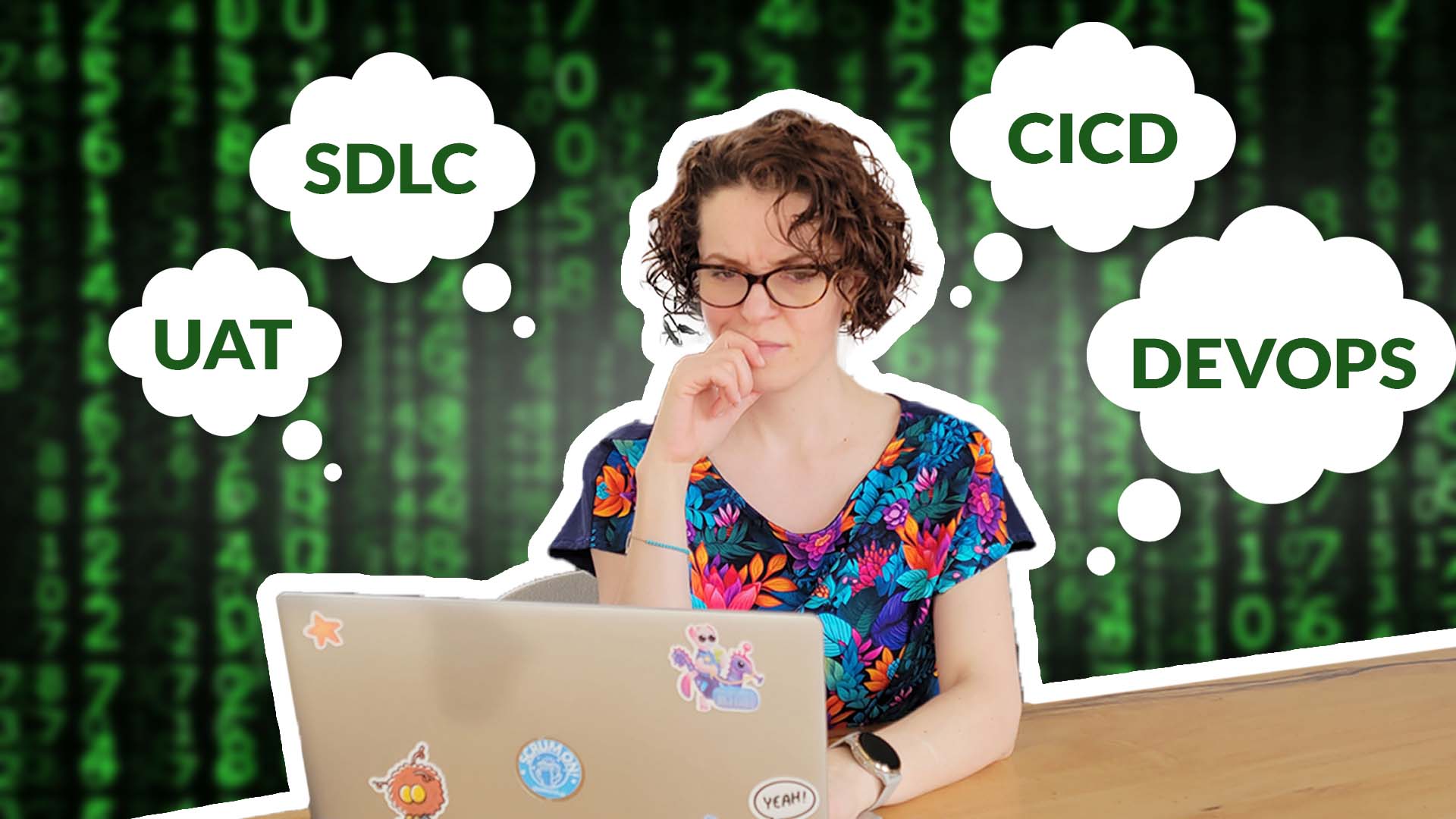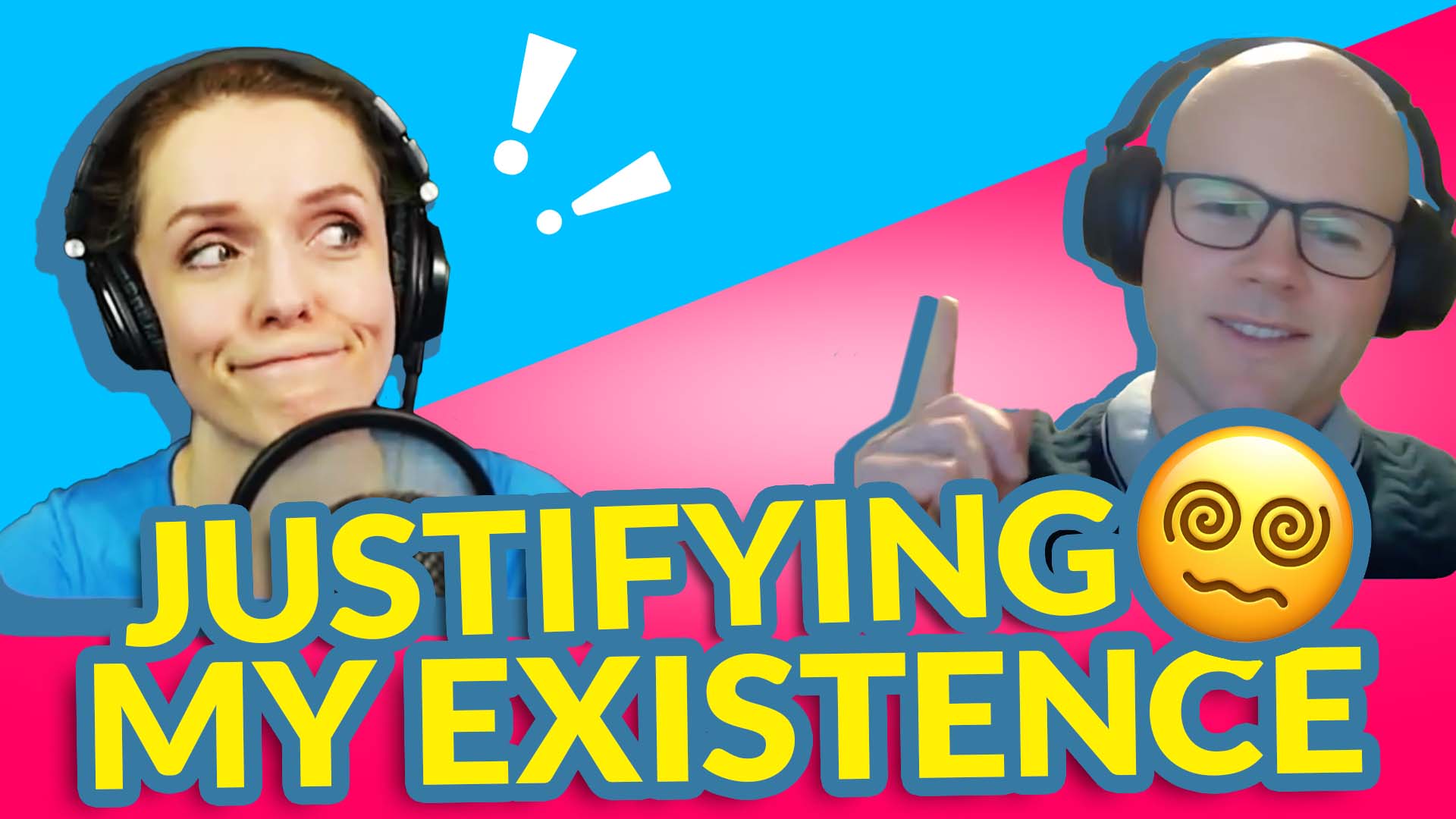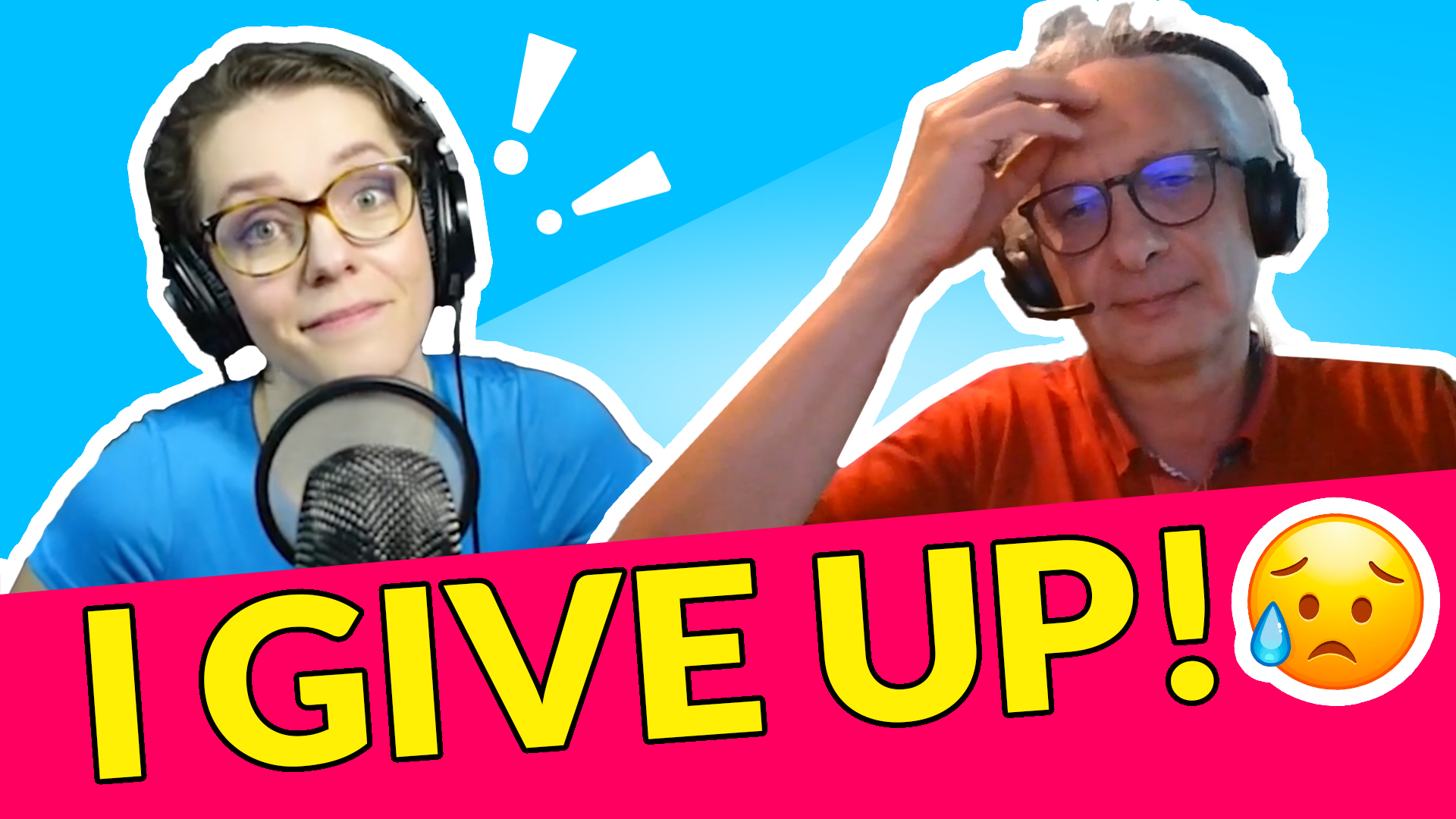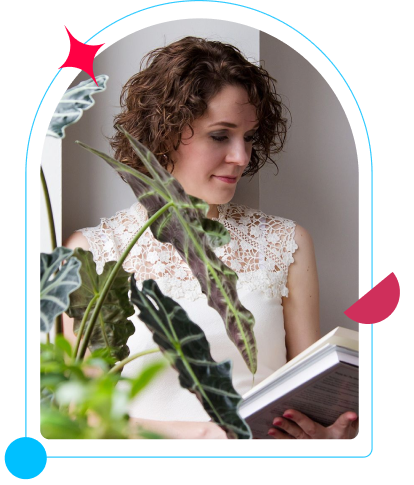Welcome to episode 5th of the Agile Audit podcast 🎉 – a podcast where I sit down with your fellow Scrum Masters to talk about working with Agile teams.
In this episode, I’m talking with ✨ Nina ✨ , she started her journey as a Project Manager making her way through it to finally become an Agile Coach, let’s get to know her a little bit better…
About Nina
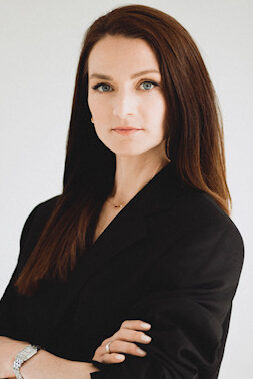
Hi, I’m Nina, and I turned 40 this summer. (Yes, there really is an afterlife and it’s better than I would have thought). I have 3 kids and a dog. And I am lucky enough to have married my high school sweetheart.
I started my career in technical sales and Project Management and got to know many industries during these 15 years.
At some point, I took part in a 9-month training to become an agile team coach and stumbled across Scrum for the first time.
It was an absolute “Aha!” moment because I realized that I had always acted according to the Scrum values and principles, only I didn’t know that there was a name for it.
It was love at first sight, so to speak.
In the meantime, I have my own company. I am involved in customer projects as a freelance Scrum Master and Workshopper and I am currently building up the German presence of ScrumMastered as part of a cooperation. Daria’s guides and concepts have supported me very well in my work. That’s why it is so important to me to help the Scrum Master newbies in their beginnings in this role, too.
In addition to the guides, step-by-step trainings, templates, and ready-to-go Miro workshops, my team and I plan to build an agile community for new scrum masters to support each other and grow together.
Connect with Nina and find the German Scrum Master products here:

Would you like to be a guest on the Agile Audit podcast?
If you are interested in coming over to share your experience OR to get some coaching from me, then fill in this form.
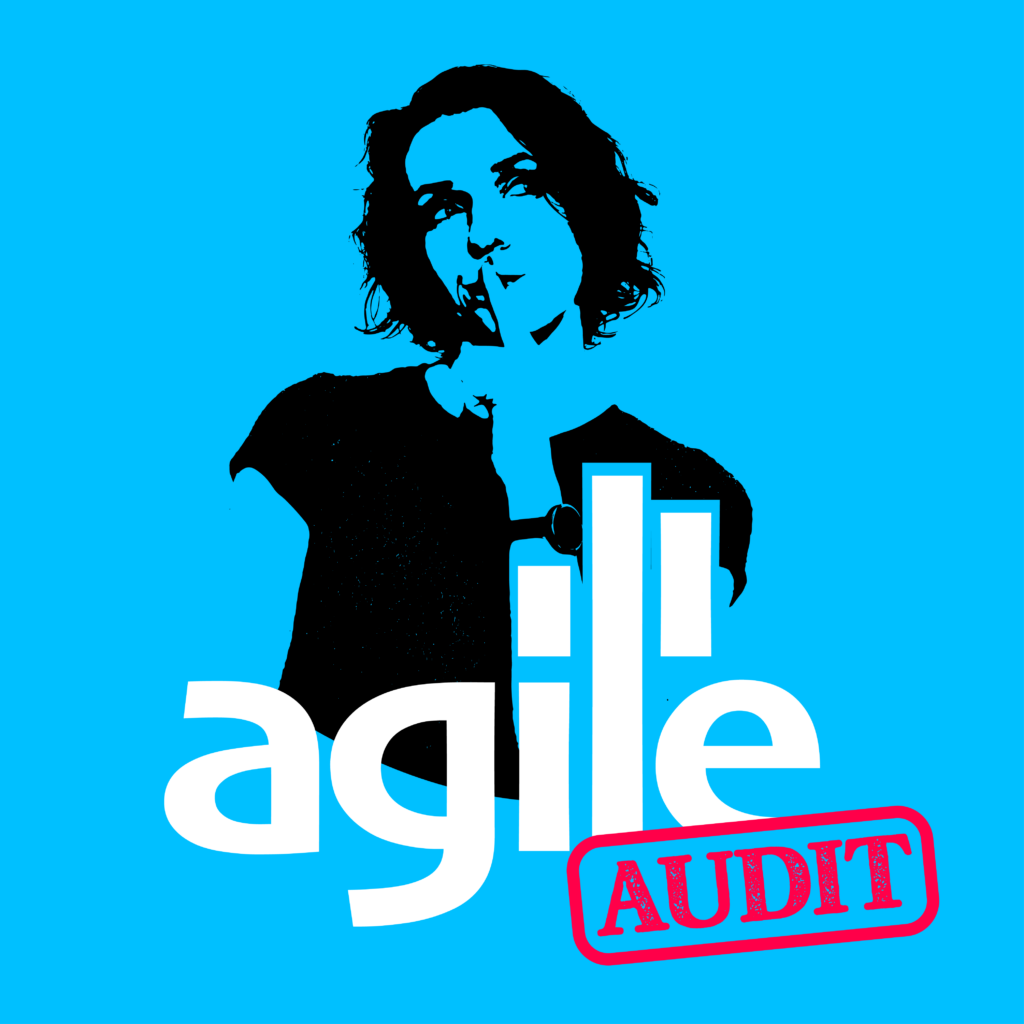
Introduction
Starting in a new role may be daunting. You are still getting accustomed to your new responsibilities and learning new skills as you go.
But what if you were presented as an expert in a field to your potential employer and your team? What if you don’t have a mentor to guide you? What if the expectations set for you are completely off the scale?
Nina has lived through this scenario and as she says – it was a traumatic experience.
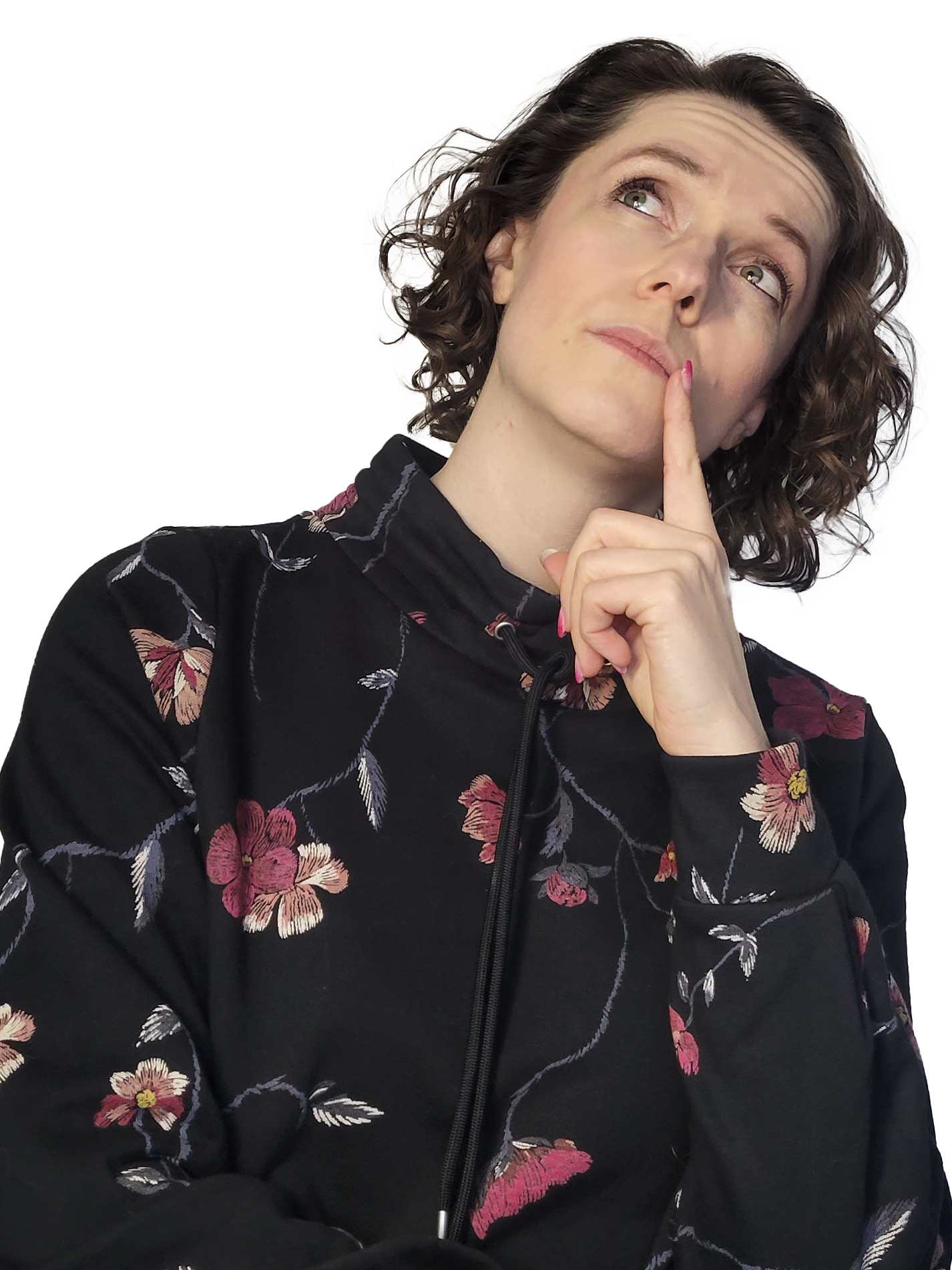
She started her career in technical sales and Project Management and got to know many industries during these 15 years. At some point, she attended training and stumbled across Scrum for the first time. Nina realized that she had always acted according to the Scrum values and principles, only she didn’t know that there was a name for it.
And so her journey to Scrum mastery began. It was a rough start. In his interview she shares the struggles, but also Aha! moments and success stories.
She tells what exactly helped her overcome the challenges and become the confident Agile Coach she is today.
Let’s go!
Transcript
Daria: Hi, Nina, thank you so much for joining me today. And, um, we’ve known each other for quite a few months now, and we’ve been working together. And I know that your first experience as a Scrum Master was pretty intense. Uh, you kind of started off, you went to the training, to the certification, and then you started in this new role.
And I’d like to hear a bit more about this experience because I think a lot of people who are listening to us will relate to that. First of all, thank you for having
Nina: me, Daria. I really appreciate, uh, being part of your, uh, podcast and, uh, I love. How you, um, trying and making your best basically, and bringing, uh, the agility to, to everybody and helping us, scrum masters, agile coaches to really become better in our role.
And in terms of your question that you’ve, uh, just, uh, addressed actually, my first experience, uh, in a new project having, uh, finished this CRU certificate was a. Traumatic one, so to say, uh, and, uh, I guess the audience, uh, would love to hear something else, some, you know, um, in great story, but unfortunately it wasn’t, but luckily it had a happy end.
Uh, but, uh, to start with, uh, well, I did receive my certification, right? It was a three day course as everybody knows. And then I kind of, uh, felt not well prepared really because I did have the. Theoretical part covered, but I did not really know how to start. So I was looking for a consulting agency that I could start working for, um, as an employee.
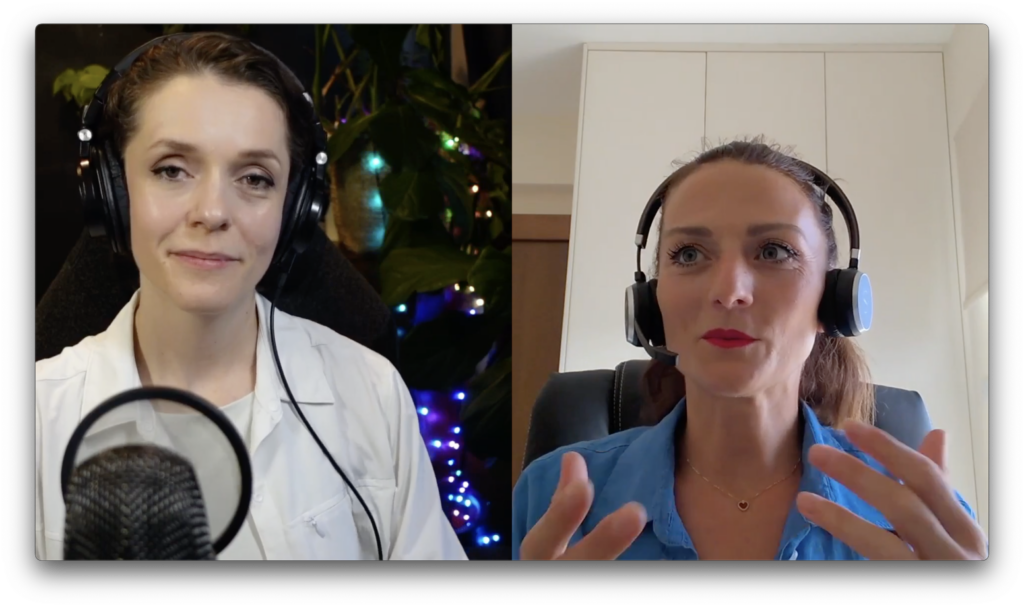
“The first experience as a Scrum Master was traumatic”
Nina: And so I did find one and the first project that I was. Put in, uh, was a huge automotive company, very well known worldwide. So it was exciting, big customer, right? And, uh, I was actually replacing a scrum master who moved on to another position, right? And what I did learn. Later on that I was sold to the customer as a senior, Agile master, scrum master, coach, everything.
And the expectations from the customers were, you know, mountains high. And I learned that later on. So I did join the, uh, the team and, uh, luckily what I did accomplish beforehand, along with my scrum certification was a training to become a team coach where we learn everything about team dynamics, about the, uh, psychological kind of part, you know, uh, about the different.
Uh, you’ve mentioned them, uh, document stages of team development, everything that you should really have covered as a scrum master, because you do work with the teams and you do have to understand all those things as well. And not just the, you know, not just the theoretical part and being able to quote the scrum guide.
Right. So I did enter the team and what I’ve noticed, it was some kind of a tension towards me, but not personal. It was just a new. Right. And what I’ve learned is that actually the Tuckman’s stages, which are for being, uh, norming, uh, storming, forming, and performing have been Standard to five at Jordan being the fifth stage.
And this is where the team is grieving because something has come to an end. Either can be at the end of the project where the team would have to be separated and put together in a new team because there’s something new coming up or, um, some relevant person, team member leaves the team and then they would have to rearrange themselves again.
So they were going through this fifth. Stage, uh, having to say goodbye to the person who they really, uh, uh, get to loss, uh, so to say it was a great scrum master. She did her job very, very well. And then me coming in. You know, having all the the, having, you know, the theory covered and to make it even more, uh, let’s say interesting, they were working in the scaled environment, so it was safe.
And there were three teams actually that were organized, um, as a cluster and on their way to becoming an art, a job release train. So the complexity was even bigger and, uh, You know, but the biggest issue that I did have was my non existent relationship with the product owner. Later on, I’ve learned that the relationship between product owner and the scrum master, it’s always a very special one, right?
So you’re trying to balance out different interests. And also kind of protect your team from, you know, too many things which are, um, likely important to the product owner, but let’s put it aside. So she would not really communicate. With me, you know, he would not explain what his problem was. So I was not able to ask him questions and the only opportunity to ask a question in regards to the project or things that were going on to, for me to have an understanding of the context I was entering, uh, was actually within a meeting where everybody else was present as well.
So he was not really willing to have a one on one discussion conversation because I don’t know, maybe his. Uh, grieving face, which, uh, was, um, uh, that much bigger than everybody else’s. I have no idea. I was starting to doubting myself even as a person, because I think this is step one, that what happens, uh, when, when things, uh, don’t go well for you.
Right. So I didn’t do any. Tutorial possible on YouTube. I did read, I don’t know, tons of books, again, a lot of theoretical knowledge. I was trying to [00:06:00] gain, you know, really basic things. Yeah. What is my part in the, uh, in the planning? You know, and this sprint planning, what do I do, how do I prepare, what happens in the meeting itself?
Do I do something afterwards? Do I need to prepare this, uh, planning with the product owner beforehand for us to be all set when we actually start the code and stuff like that? So, since he did not really communicate with me, I was… Trying to prepare myself for all different scenarios that could possibly occur.
Scenario A, B, C, D. Well, to make a long story short, right? I, um, lost my sleep. No kidding. I did not have any problem sleeping beforehand. So I, I, I said it was dramatic. Um. Because I was like, did I cover scenario, uh, G I think I haven’t yet. So maybe I should turn on my computer and make sure that, you know, I also have something prepared in case, you know, the meeting goes that way.
Oh my God. And in parallel, me being a mom of three, one of our kids, because it was the pandemic phase. Everybody was staying at home, me being all stressed out and, uh, problems, uh, with his homework and school and motivation as such. I was like, you know what guys after three months, I was like, I need to cut it right now because somebody is going to get hurt and most probably it will be me all burned out, stressed out and not helping anybody.
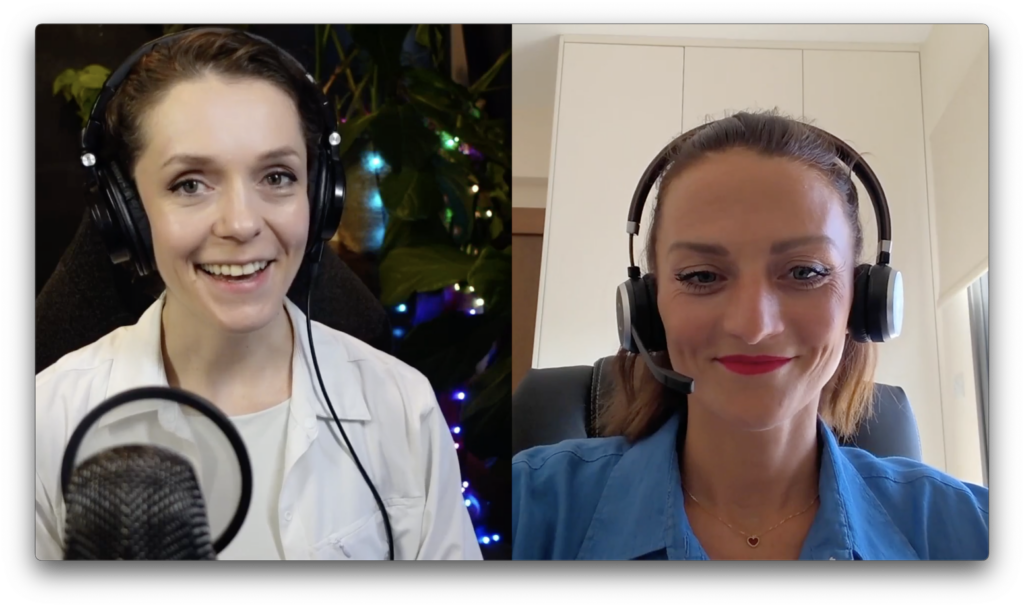
Nina: So I went, uh, to, to this company, which sold me as a. You know, big professional and everything. And, uh, obviously, uh, pimp my, uh, profile so that the customer was willing actually to, uh, um, to work with me. And I, and I did talk very openly saying, you know, You know what guys, I cannot do this anymore. I really need to step back and take a break because, um, you know, I was hoping to get some sparing to get some support mentor mentorship.
They did do provide trainings every Friday, but again, a lot of theoretical knowledge that I could have to teach, you know, uh, taught myself actually. Right. So I did take my time off. I think it was two or three months.
And I’m so glad and grateful that I did give it another chance, you know, with a different company, again, starting with a new team, and it was a totally, totally new story and it’s like, yeah, You know what, I might be not that stupid after all, and it’s all about, you know, the people either willing to let you in, help them, support them, be part of their team, or really be very resistant in terms of, you know, giving it a new chance, another chance, whatever.
Imposter syndrome – am I ready?
Daria: Well, yeah, that’s, um, it is kind of when we sometimes are presented with people, as you say, that in the second Experience, people were willing to let you in and to work with them and to maybe bring some new things, changes and improvements, but it wasn’t exactly the case in this first team. So that made it so much harder.
Nina: Yes, exactly. And also in parallel, as I’ve mentioned, I didn’t doubt myself and my capabilities and was questioning whether it was the right role for me to really take on, uh, whether I was ready, you know, even though I had, you know, Uh, 15 years of, uh, work experience and project management and, uh, technical sales, but it was like, maybe, um, you know, the bar is too high, come on, you know, um, so it was an interesting, but, uh, but I’m glad, uh, like I said, that I, um, did give it another chance.
Overhyping junior Scrum Masters – why?
Daria: So, um, I think, um, one of the things that I want to touch on over you is, as you said, this, the consulting firm, right, that you were working for kind of sold you as this huge professional with a lot of experience. Right. And so you came into the company and the team was like, well, you know what to do and just kind of left you hanging basically because they had this huge expectation.
Even though you didn’t really have that practical experience yet, and you were kind of hoping to come in and say, well, I’m going to learn things right on the job, but there is like this clash of expectations. So. I guess, why do you think, first of all, you were sold in this way, like as this huge professional and, uh, what do you think would help actually to resolve that?
Nina: I’m not sure whether it’s a general issue of this industry, like consulting industry, because time is money and, you know, uh, you, you as a professional coming in into the project, uh, you are being charged per hour. Right. So every hour counts. It’s all about, you know, please do stay in this project as long as possible.
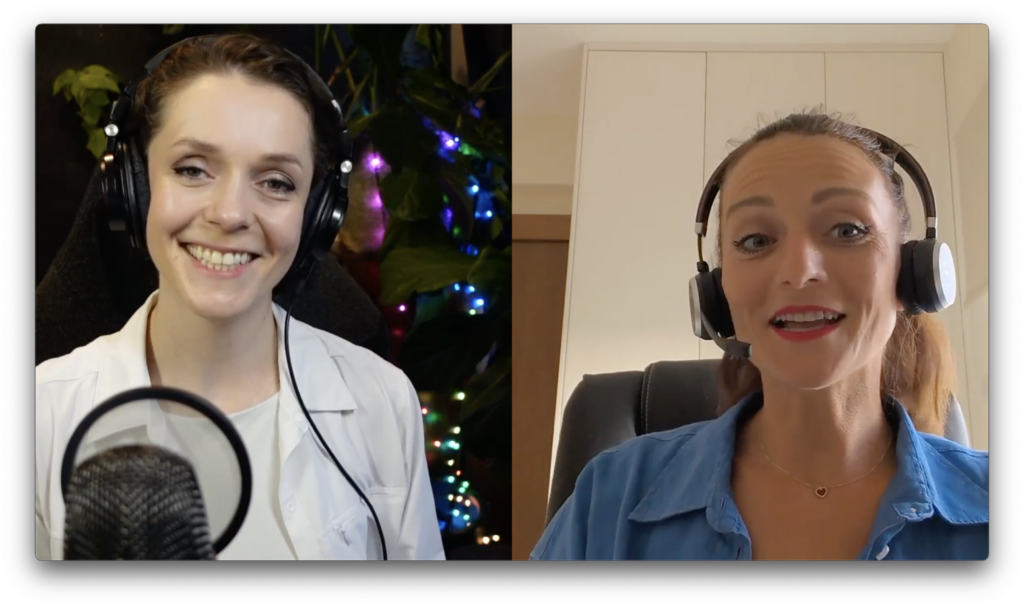
Nina: We need the reference. We need this customer and just go ahead, just get this job, uh, and get this job done, whatever it takes. All that we want to see is customer big, satisfied and happy, you know, full stop. And I don’t know whether it’s different in other countries, but I think the consulting business as such is quite tough.
Right. And that’s why I, I’m very, um, surprised in a negative way that a lot of students being, you know, uh, which have just freshly graduated from the university would start up as a HR coach and scrum master, even though we know, we both know, and each scrum master would probably say the same, that this is nothing for, for a person without any job experience.
This is, you know, you cannot be mentoring a top manager without having any job experiences at all. Right. So what, what might be a good idea is really to seek a discussion, an open conversation. I’m a huge fan of just picking up things with the customer and really ask him, what are your expectations? And this is what I’m able to bring on the table.
This is what I have. Right. Do we meet or. Would you say the gap is too big and maybe you should go ahead with another person rather than leaving everybody unhappy, unsatisfied, you know, losing your reputation in worst case as a company also. So this is something I think that might help solving the situation for you as a new scrum master.
Daria: Definitely.
Daria’s very first Scrum Master experience
Nina: But, uh, I would also be very interested, uh, Daria, from your point of view, because, uh, like which kind of experience did you have with your new project, with your first project or maybe even earlier, you know, how did you come across Scrum as such? When did it make click and you were like, Oh my God.
This is so interesting. I, I want to learn more. Give me more.
Daria: Oh, well, uh, it’s, um, also I feel like a lot of people kind of start out in Scrum a bit of by chance, you know, that’s kind of how I feel that it started out for me. I was working in the content management, completely like a different, uh, type of work.
And my expe well, not my experience, but my education was in project management. And so I had this big dreams, fresh out of college, right? That I’m going to be a project manager, this is what’s going to how my career is going to look like. And, um, at the time I was working in content, so I was creating content.
And I kind of felt, okay, it’s been a couple of years now. I kind of want to start moving to a different role. And I started to look into, okay, how do you become a project manager? What do you need? And it’s as with many of this. It’s kind of like the cycle of in order to become this person, you need to have experience in this, but in order to have experience, you need already to be in the role.
Um, and so, you know, the company I was working with was going through this agile transformation. So we were hearing these words, agile, scrum, and, uh, we had like a training at work. Which I don’t remember anything from the training whatsoever. It was a two day training. And, um, I thought, hey, maybe that’s an opportunity for me to kind of start growing in my career.
And I just went in, and for me, I didn’t at the time even understood, I didn’t understand what this role is. Like, what do I need to do? What it is supposed to be? For me, it kind of looked like something project manager y. Uh, so kind of in the way that where I wanted to go. Kind of similar. Yeah, because that’s kind of, it wasn’t clear, right?
It was hard to find the information, more practical information. No one in, in my office who had like a small office, um, big company, but you know, small office, local office, no one knew what it is. People didn’t really understand what it is. Just, it was coming our way. And I passed my PSM and I went back to my manager and I said, Hey, You know, maybe we need a Scrum Master on our team.
Yeah. And, um, I was unofficially… Became a scrum master for my team, and it was not a very exciting, I think, experience, as you say, your first experience was traumatic. I think my first experience
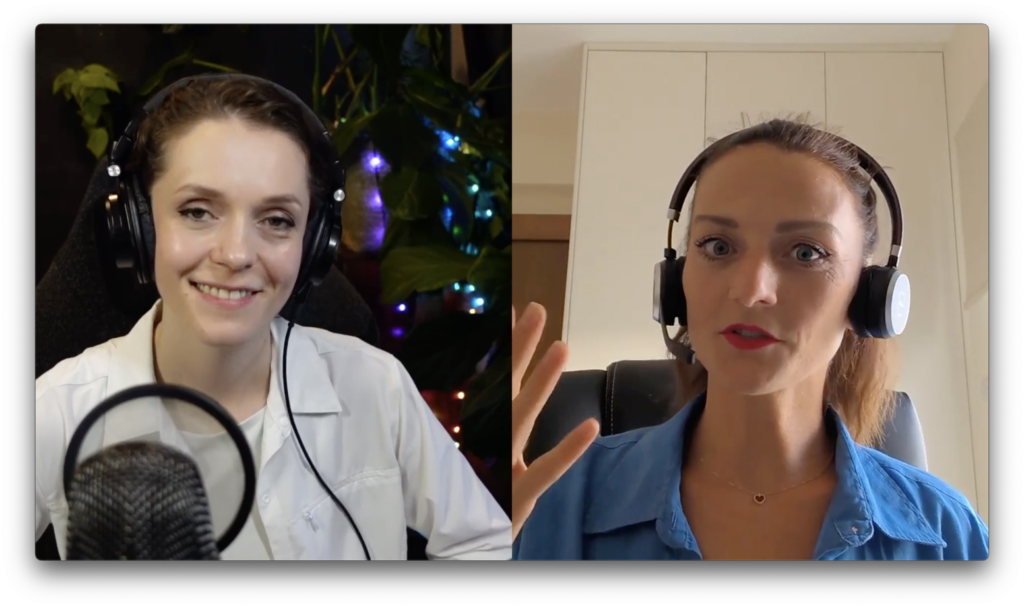
Nina: was also traumatic. Very exciting for my taste, to be honest.
Daria: Yeah, but I think in my case, what was worse is that I was not actually doing a scrum master role at all.
Like, not even a little. So what did you do then? It was really more like being a coordinator, um, and in a way, just managing the processes for the people, making sure that we are on time, more project management, um, and coordination rather than really being a facilitator or a coach or, um, really helping the team grow.
And so what ended up happening is that people were looking at me as like half a manager. And so they were setting expectation on me that didn’t make sense sometimes, like, they, they kind of looked at me as, well, if we have a problem, whatever that is, even if it’s something that I should be taking care of, I don’t need to worry about it because we have Daria who is going to manage whatever the problem is, right?
And so that became pretty stressful because it wasn’t at all the kind of experience that I really wanted to have. Um, and it didn’t actually, I was not creating relationships with the team. It was like the other way around. It was like actually deteriorating. The more I was in this role, the more the relationships that I had with my team was deteriorating.
It was a weird experience. Oh, yeah. All right.
Nina: I think it’s sometimes so difficult to really find the balance. And of course you, uh, do get the security and some kind of a standing right, um, throughout your experiences as you go, uh, to not become. Like a pushy person, like imagine, go ahead, did you think about the deadline?
What happens there? You know, and some kind of a mom, come on, I’ll do it for you. You know, just give it to me. Don’t, don’t worry about it. I had to commit the documentation. You don’t like doing it. You hate it. I’ll, I’ll take care of that. You know, I’ll make your life easier, but rather, you know, giving the responsibility back.
Uh, where it belongs to the team, actually. Um, this is something where you really, uh, also have to find how it works and discover, you know, um, how this can be implemented.
Did you have a mentor? How did you manage?
Nina: What I also wanted to ask you throughout this time, did you have any kind of support, some sparring partner and mentor, somebody that you could talk, um, talk to you, um, maybe, uh, address your, uh, concerns and stuff like that. Brainstorm on a better way of how to do things.
Daria: Yeah. And I think that’s kind of the big point here for me is that I didn’t have anyone. Um, no one really understood what the agile thing is, what Scrum is, what the role of a Scrum Master is supposed to be.
Um, no one at all around me, my manager didn’t know, the team didn’t know. And I was kind of doing whatever I could think of or that I assumed I needed to do. You know, and that’s kind of how I was going. Um, kind of with the flow, I think that definitely didn’t help because I learned, like I passed the certification.
I did some training, et cetera, but I actually didn’t know what. To do with it, right, when it’s like, okay, how do you apply it? But what does it look like actually, like in real life, right? What am I supposed to do? What is like the ideal scenario? And then obviously we can start, okay, what can we do right now?
And then we’ll improve. But I didn’t even know what it’s supposed to look like. And, uh, that definitely didn’t help. Because I didn’t know how to set the expectations because I didn’t know what expectations I was supposed to set. Right, for me and for the team. And so that definitely was a challenge. Right.
Nina: But how did you manage to, uh, resolve the situation or, uh, did you get to the point at some time where you just said, you know what, thank you, but no, thanks. I’m gone. You know, and what would maybe be your advice to people, to Scrum Masters, because it’s not unusual, uncommon that you, um, enter. A new project, a new context, and people are very new to Scrum or they have worked, uh, with Scrum in a previous project, but not, have not been really following, uh, the, the framework as such and have a total wrong understanding, total wrong, uh, mis uh, um, interpretation of the framework.
Uh, would you have a good advice on how to behave in this case? To get everybody on the same page.
Daria: I, I think that’s kind of what you said, right? Um, it is really not an entry position if you are entering into this position You need to have someone who has the experience Like next to you who can help you understand what you’re supposed to do, what you should do, what you shouldn’t do right in this role.
And for me is, um, I kind of, I worked, um, at the time in this company, but I left because I was moving to a different country. So, you know, and as I moved to Canada, I thought, well, Scrum Master seems to be like the highest level of experience that I have. So I’ll continue looking for a job in this role. And I got really lucky that I was able to join a company where we had kind of a small scrum master team.
And so we had a manager. Other scrum masters and our manager was an amazing mentor who really helped us understand what it is. What the role actually is, and I’m really grateful for having that experience because this is when I actually understood what the role is.
And this is when I started enjoying it, where I thought, well, actually, I love this job. It is very fulfilling once you know what you’re supposed to do. Once you have that confidence. And once you start building the confidence, as you understand what you’re supposed to do, as you start seeing some of that positive change within the teams.
Nina: And you are able to drive this change, right? And the people realize, Oh boy, look what, what things are possible to, to be achieved within this team, within this company. We can not even thought that it’s, uh, it’s actually something that we could achieve as a team.
Having a Scrum Master team that helps you grow
Nina: And this is what happened to me as well. In my second project, there was a small team of HR coaches. We could really see, uh, or let’s say we could really combine our strength, our experiences, and, you know, um, deliver the most value to the organization possible, right. Learn from each other. And along, uh, with this new project that I’ve entered and having this, uh, little sparing team by my side, I also enrolled a mentoring program.
First, actually, I really, I already did start this mentoring program with my first project, because as I mentioned, I was constantly thinking that I did not, I was not doing enough, right. Also stressing myself out and trying to, to participate there. But what I’ve found is, you know, you really need to have the right mentor who is able to speak your language, you know, because you starting.
Very fresh and things may be too complicated, too complex, you know, some, you just, you really need to take your time to get there where the practitioners who’ve been doing it for 10 years and more are already. So it was, they were too far away, you know, I could not really contribute to this circle. And I was like, see, I’m even, you know, not able to, to provide any value to those people or me, I think I’m not even asking the right questions.
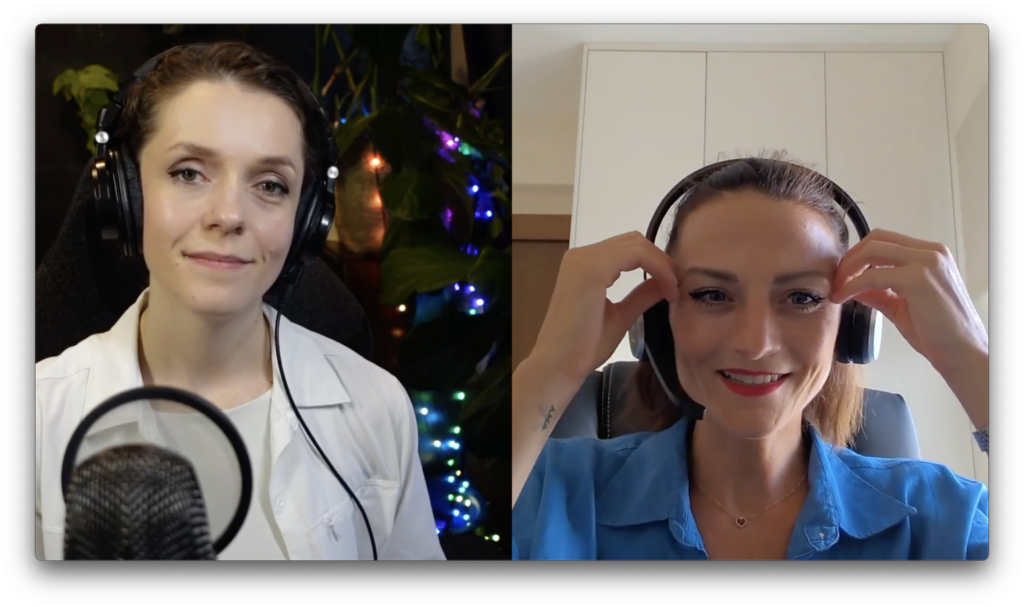
Nina: So I was kind of really seeing myself as, you know, being in this gap from. You know, having the theoretical part covered and finding myself in a mentorship program where the people were just too, too far away from what I was, I needed somebody who could really, you know, uh, take a few steps down and, uh, you know, uh, take my hand and maybe being, uh, a reliable partner for the few steps. That I needed to take with someone, you know.
Daria: Like walk with you, right?
Nina: Exactly. And this is actually where I came across your content, your YouTube channel, the products that you offering in your store, they gave me such a great guidance, like really the step-by-step guidance that you need when you’re starting out before you actually have developed this level on confidence.
To just let go of everything else and do your own thing because you’ve developed your own identity of this crown role that fits your personality, which is fine, you know, you can, you, you’re allowed to do things your way, right? You don’t have to become another Daria or another, some, somebody else just. Be authentic, be yourself.
What really has to be covered. And this is your responsibility is of course, you need to understand Agile, you need to understand the frameworks. You need to understand all those basic things, the principles, the values you really need to. Take your time and really understand them, not just, well, yeah, I, I read the scrum guide, I think a few times that, that should be, that should be enough, really take your time to call it, inhale it, so to say, and, um, yeah, and I did also enroll your, um, mentoring program because I felt like I can bring my own cases.
And you would take your time, you know, to really dive deep into what was important to me and help me develop the right way forward, help me to develop my own solutions, try them out, reflect on them the next time we met. So, uh, this is actually where, uh, our relationship, our friendship began. And I felt like, Oh, cool.
I’m, I’m not. Feeling that alone anymore, actually. And as you’ve mentioned, I started to develop this positive kind of mindset towards this role. Oh, it doesn’t have to be all stress. And, you know, I don’t even know how to call it, but I can actually enjoy it because I do enjoy working with people. I love seeing them grow.
You know, I, I love, um, supporting them and discovered their own potential as well. Achieve things which were unimaginable to them, maybe a couple of weeks ago.
What was your biggest achievement as a Scrum Master?
Nina: What I also wanted to, um, lead our discussion towards, can you name maybe the most memorable, like positive memorable moment in a project that, uh, you happen to be part of?
What was your like, biggest. Achievement, biggest win that you keep on thinking about?
Daria: Well, there are a couple, you know, and I’m trying to kind of see what would be the earliest one. But the biggest one that I can think about is, um, I think when I was working for a big financial institution and we were like a smaller department within it, like an IT department.
I was just a scrum master as they say, I wasn’t like an agile coach who had all of this hierarchy in there. I was working with the team, but kind of everybody in the small organization knew who I was and they knew that, um, if they want to have some help with their processes or they want to understand a bit more what this agile thing is, they need to speak with me.
One day I remember there was like a bit of a tension that rose up because there was some new requests coming from like leadership. I’m from there are executives and it was specifically affecting my team. And so. I was really mad because we had planned our sprint, you know, we were working and then suddenly like a deadline that came out of nowhere and that was pushed on the team.
And so I went and I had to actually speak to our SVB, who also already kind of had a relationship with them. So it wasn’t like, Hi, hello, I’m Daria, who are you? We kind of already knew, he knew who I was and I had to come in and say, Hey, um, What’s going on? You can just randomly set the deadlines like this without consulting with the team.
Right now I’m saying you promised something to a client and you don’t even know if it’s possible and I just talked with the team and I don’t think it is. So you just kind of set us for failure from the start. What happened after that is that he sent out an email to the whole department and he said, Daria just called me out on doing something really bad, and I apologize. And I remember walking, it was before COVID, I remember walking down the hallways and people would stop me in the hallway, pretty much. Right. People would say, Hey, thank you so much for like protecting us. Thank you so much for being there to support us. And it was even people from other teams.
Shielding your team
Nina: Oh, wow. Wow. Beautiful story. And I think it’s a, it really highlights again, part of your role as a scrum master, sometimes you really need to protect the team, you know, for them to be, to be able to shine really, you know, because things are coming, they keep on coming from everywhere and the, the, the project that I’m currently in, and we’ve discussed it, right.
Having the. Product owner, um, with five top one priorities on his list and deadlines and everything else. And this is where you actually understand, all right, we need to start with this person, you know, first of all, you know, what is it that motivates him? Does he want to shine somewhere else and everybody else needs to just go ahead and deliver whether it’s possible or not.
Just make sure that he gets his ego covered. No. Yeah. Right. And this is important that you, you really have to be, uh, have to have this courage to speak up, uh, for the interests of your team and, uh, really, uh, be like a shield. Uh, and. You know, particular cases and the situation requires for you to behave this way.
You do have this power. You are empowered to do
Courage to be disliked and put yourself out of your comfort zone
Daria: so. Right. And I think this is one of the things that it’s really hard, right? Because you actually need to put yourself so much out of your comfort zone. And I feel like in order to be successful in this role. You kind of have to be okay with that, you know, um, I remember I saw I think a book once that was called courage to be disliked.
Nina: Yeah, exactly. And I think this is a key really to, uh, especially when you enter a new context to really understand who are the deciders. Who are the people, you know, I really have to talk to constantly, maybe have a regular exchange with, um, because their decision will fall down on my team and affect my team.
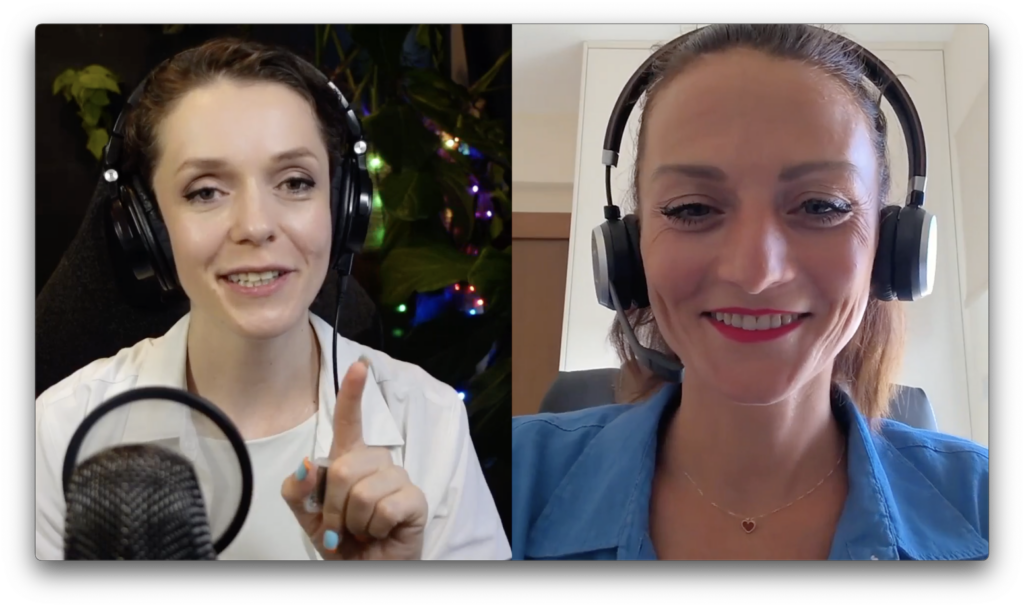
Nina: And I really have to be like a. Prolonged arm of my team, because I want to sit, uh, in those meetings at the table, or maybe in the, in the, I don’t know, online meeting, whatever, but I would like to also represent my team’s interests. And this is so important to really take your time, especially at the beginning to see, all right.
Who do I need to talk to? Who needs to know me and yeah, having the courage to be disliked. Definitely. Of course. But again, you can always say, Hey guys, I’m here for a reason. You want to have the change you want to, you know, uh, fulfill customers requirements and customers needs. You want to deliver value.
Then we need to talk about ugly stuff. As well, right? You, you really need to bring the ugly stuff at the table, make it discussable again. And this is where we talk about different, uh, uh, dysfunctions. That are visible when people are afraid to speak up, uh, to really share their concerns, their thoughts, whenever somebody else joins the room or, or joins the meeting.
And this, again, this is something that you really have to develop a sense, like a little, how do you
Daria: call them? Antennas? The antennas, like the radar.
Nina: Yeah, you, you have to have this radar. for people’s behavior. So, and I would always give the advice to scrum masters. Do you also learn about personal dynamics, um, psychology, how do people develop, how do different people react to changes, uh, what are different team dynamics, as I’ve mentioned already, what happens with the team, uh, in each, you know, stage of the team development, stuff like that, because you deal with people, they have to be the center of your attention at the end of the day.
And, uh, it does bring the most joy, but at the same time, it’s quite challenging, um,
A success story from Nina
Daria: as well. Definitely. Well, I mean, you asked me a success story, though I do want to turn this question back to you and ask the same question.
Nina: I would gladly share my success story as well. So far, that is very close to my heart.
Actually, I did have the, uh, how do you call it? I was lucky enough to be able to stay on the team level for quite a while, because there was quite a big team of HL coaches and scrum masters, and they got all the measurement covered. Stuff like that. And I did have only one team to take care of, but the team grew at, at some point we needed to cut this team.
Right. And so we did cut the steam and within three months or two or three months, we had to hire five new developers and to really onboard them inside the team. Oh my God. That was very emotional because I really could take my time that I could invest in every person, understand each person’s.
Challenges, fears, uh, whatever came along, right? And we ended up, uh, increasing our velocity by 100 percent in this new build team within four months. And it was, Oh, I’m getting goosebumps when I’m thinking about it. It was a very international team that were, you know, sitting all over the world. People from Croatia, from Poland, one was from India and stuff like that.
And even though. I’m not in this project for, I think for two years now, we still keep on writing each other because it was a really close Chrome master, Dev team relationship kind of thing. You know, the PO was great by the way. Right. And, and it’s just always, it mellows my heart when I think about it.
Daria: This is so great. I think just kind of seeing the smile, you know, like I can feel the, as you say, having goosebumps as that you were kind of feeling, yes, I did something great. I accomplished something really great for this team. Not for myself, but for these people. Definitely.
Nina: If you put the human in the center of your attention and, uh, support him, you, you, you don’t have to be the hero.
Nina: You are not the hero. As long as you make other people shine, then you feel like you’re doing your job right. This is what I’m perceiving, you know, because they achieve their goals. They can increase their velocity, whatever. They become better. They, um, keep on, um, setting the bar even higher. They have fun.
When did you realize you’re mature enough in the role of a Scrum Master
Nina: Well, you know, doing it is just very, very joyful to be part of. I have a few more questions to you that I know the time is running. Maybe some people from your audience might be interested. Which point of time did you realize, you know, I’m mature enough in my role as a scrum master. I’ve gained enough experience.
To be, um, able to go out there and be, become self employed and have my own company, train others, mentor other people. Was there a particular moment in your time or some aha moment, so to say, where you were like, you know what, I think I’m ready for the next
Daria: step. Uh, I don’t know if there was like a click.
Or something that happened where I felt that way. I remember that at some point after several years working in the Scrum Master role and feeling, I guess, confident in myself. Seeing some improvements that I was implementing and bringing to the teams. Now, I’m not going to say that during, like, say, those three, four years.
That I always had only success stories, right? I had some failures as well during that time. I just kind of felt confident enough at this point that I felt that I don’t necessarily always need to go ask for help, that I would be able to figure it out on my own, uh, by doing some research or by trying new things at that point.
I thought, Hey, I want to become a trainer. And I think that was the first kind of realization where I thought I enjoy it, I feel confident, I think I have something to teach. And that’s when I went through the trainer path, which took me like a year or more to actually get to that, right? In terms of becoming self employed, I don’t even know if this is really necessarily what I was looking for.
I think. The trainer was that one step. I’m trying to say it’s not about like being [00:40:00] self employed, but it’s more about being able to choose where you’re going, like where you want to work. And I feel that this is what was that point for me. where I felt that now I had enough maybe of this company, right? I want to go and try out something else.
It was more of my choice where I wanted to go, where I wanted to apply. Did I want, like, after I remember I actually went, um, I passed the interviews for one of the companies and like, I went through the whole, their whole process and like, Oh my God, we want you to come and work with us. But I didn’t feel like that was the place where I wanted to go.

All right. And I’m like, you know what? After considering, after talking with you, I don’t think that I am the right candidate for you, but I know someone, right? So I sent someone else in my place, but, um, I feel like that was the point where, I felt that I can choose. Rather than being saying, Oh, I’m a self employed, you know, I’m, I was still looking for a full time job.
Our best advice for Scrum Masters
Nina: It was this, um, flexibility. Yeah. That you were mentioning to say yes or no to particular projects. You know, if you felt like, you know, the chemistry is right. I think we could be a good match, then I’ll just go for it, or vice versa. Mmm, nope. I don’t need that. When you would be to give a good advice, like if it would be your best advice ever, for Scrum Master newbies, just starting out in this role, just as you and me a few years ago, um, What would that be?
Daria: The best advice? I think what I’m seeing right now a lot is kind of people seeing the role of a scrum master as this kind of popular role, the place to be, oh. You have remote opportunities, it is well paid, etc. And I feel a lot of people kind of pass the certification, they’re like, okay, now I’m ready. I feel that people are not really understanding the complexity of their role sometimes, and as you say, like, freshly out of college, here, Scrum Master.
Well, you are not actually ready for the role yet, for the complexity, right? You don’t have… The experience, as I said, you need to be comfortable with stepping out of your comfort zone, right? And be comfortable with conflict, uh, you know, be able to work on your own. And I think before you say, okay, that’s it, I’m kind of jumping in there, is to make sure that you have the experience.
Um, and then you don’t have that at all, right, you’re just kind of, I’m just jumping in and you come to a situation kind of similar to yours where. You were sold like this huge professional and you’re kind of thrown into the water, but no one checked if you can swim.
Nina: I ended up being thrown too far out of my comfort zone and whatever it happens, you end up in this fear zone.
If you know the model that I’m referring to, right? And I was like, Oh my God. And I was like paralyzed. And then you’re paralyzed because you’re just overwhelmed with everything that you need to handle, you know, somehow.
Daria: Yeah, yeah. And I feel like making sure that, okay, are you actually ready? Like, consider the complexity of the role.
Don’t think it’s just something very basic. There are a lot of complexities. There are a lot of things that you need to… Know how to do, but also be ready to kind of figure a lot of these things on your own. Making sure that you can swim before you are being thrown into the middle of the ocean. Right?
Yeah. Yeah. Um, yeah, so I guess that would be kind of the advice. ,
Nina: if I could, uh, add on this one would also be. Seek for help, you know, um, seek for like minded people, for sparing partners. There are a lot of networks out there, meetups, stuff like that. Um, get yourself a mentor that can lead you along the way until you’re able to like walk properly and don’t need his or her assistance.
Um, this is something that really, really helps to really gain this confidence and then just develop your own. Identity, personalities, it does take time. There will be a lot of failures, but again, you will learn from them. And I remember somebody, a trainer, scrum trainer who said, you know, the first project is always the worst, but you need to overcome it and you will overcome it somehow.
This. second context that you end up with, you will most likely implement the things that worked somehow in the first project and only in your third project, you actually will be doing the things that this particular context really needs and requires to be able to succeed. So it does take time and you grow as you, as you go and the, this journey never stops.
Right. You need to keep on walking, keep on also gaining additional knowledge, teach yourself, um, interact with the people, learn from them again. Because I think the problem that I’m seeing and witnessing right now is always, uh, actually now it’s Crime Master being some sort of experienced. after a year and a half or two years, it’s like, well, you know what?
I know it all. You know, bring it on the top one professional, whatever, whatever you need, you can just, uh, call my number. And this is, uh, I think that’s very risky, you [00:46:00] know, to be that way. To think that actually, you know, I, I’ve earned the wisdom. Mm-hmm. . Um, and this is how it works because every organization is very different.
Every team within the same organization is very different and it’s always, you really need to understand the context and it takes time and each context needs something else.
Daria: Definitely. Really great advice. I love that. Awesome. Okay. Well, that was a really great discussion. I think we just got some really, really important points here for new Scrum Masters and for growing Scrum Masters as well.
Nina: Oh, yeah, I think great advice there.
Daria: I do want to, um, kind of give you a chance to share a bit more about the work that you do now in Germany, because we are working together and I think that’s a.
Perfect opportunity to talk a bit about that.
Nina: Yes, yes. I will gladly do that. So at some point we had this great, uh, idea for this, for Scrum Master to actually step aside the borders, even though there are no borders, as we know. Also distribute your great products in Germany, them being translated in German. And this is actually, uh, what we’re currently doing with my small team.
So we have, uh. built up store where those products can be bought and one by one, we’re adding new products to our store. So whatever you feel, you know, you feel like, you know what, I’m more comfortable in German, you know, my, whether your English is not that well, whatever, or maybe the, the project that you’re currently.
Taking part in, uh, does not require you speaking English, uh, whatever. Would love for you to reach out to us. Also, if you, uh, seeking coaching and sparing, if you’re not sure on how to. You know, take your first steps. We’re always glad and willing to help you with our advice, with sharing our experiences.
And of course, uh, with Daria’s great content.
Daria: Awesome. So I’m going to put all the links for, um, all of your website and, uh, all of the information that you have in German in the description of the episode so that people can come over there and check it out. It was really nice speaking with you today. And thank you for sharing your experiences.
Nina: Thank you very much, Daria. Hope to see you soon. Thank you for everything, for the great work that you do, and talk to you. Bye.
There is a guide for that!
If you’d like to run a self-assessment with your team using tools like FigJam’s poll widget, then this Team Self-Assessment guide is perfect for you.
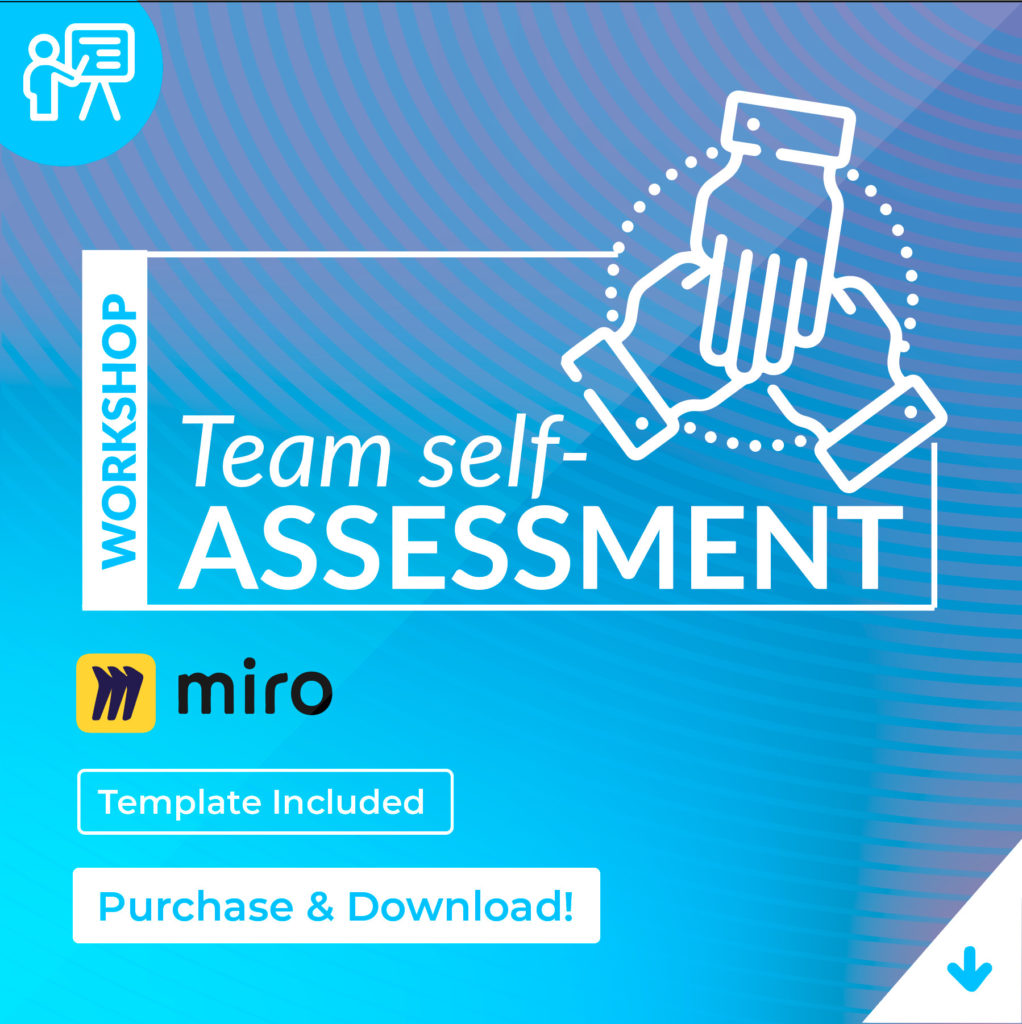
The Learning Zone Model By Maxwell J Smith
Nina mentioned an interesting model that I wanted to share with you about going out of your comfort zone and learning from it.
This model explains that in order to really learn we need to go out of our comfort zone. It then divides the experiences into three levels:
- The Comfort Zone: what you do is routine and familiar.
- The Learning Zone (or Growth Zone): you experiment, stretch your abilities, and develop new skills.
- The Alarm Zone: where you’re operating outside your knowledge and understanding, causing you to feel overwhelmed and panicked.
You can learn more about this model here.
